Your search “Keep%20the%20Death%20Penalty%20Abolished%20fin%20the%20Philippfines%20%20%20%20%20%20%20%20%20%20/page/cdm16501.contentdm.oclc.org/cdm/ref/collection/criminal/id/154 ”
Document(s)
Death Penalty and Arbitrariness
By Amnesty International - USA, on 8 September 2020
2020
Arguments against the death penalty
More details See the document
This sheet details the factors which contribute to the arbitrariness of the death penalty in the USA.
- Document type Arguments against the death penalty
- Themes list Arbitrariness,
Document(s)
‘A “Most Serious Crime”? – The Death Penalty for Drug Offences and International Human Rights Law’
By Rick Lines / Amicus Journal, on 1 January 2010
2010
Article
More details See the document
An in-depth analysis of the international law ramifications of applying the death penalty for drug offences. It reviews the the ‘most serious crimes’ threshold for the lawful application of capital punishment as established in the International Covenant on Civil and Political Rights. It then explores the question of whether drug offences meet this threshold by examining the issue through the lenses of international human rights law, the domestic legislation in retentionist states, international narcotics control law, international refugee law and international criminal law. The article concludes that drug offences do not constitute ‘most serious crimes’, and that executions of people for drug offences violates international human rights law.
- Document type Article
- Themes list Drug Offences, Most Serious Crimes,
Document(s)
A/HRC/48/L.17/Rev.1 Resolution adopted by the Human Rights Council
on 2 June 2021
2021
International law - United Nations
aresfrruzh-hantMore details See the document
- Document type International law - United Nations
- Available languages A/HRC/48/L.17/Rev.1 قرار اعتمده جملس حقوق اإلنسايفA/HRC/48/L.17/Rev.1 Resolución aprobada por el Consejo de DerechosA/HRC/48/L.17/Rev.1 Résolution adoptée par le Conseil des droits de l’hommeA/HRC/48/L.17/Rev.1 Резолюция, принятая Советом по правам человекаA/HRC/48/L.17/Rev.1 人权理事会 月 日通过的决议
Document(s)
The Death Penalty in the United States
By International Federation for Human Rights (FIDH) / Antoine Bernard, on 1 January 2002
2002
NGO report
More details See the document
The report indicates that most of the people sentenced to capital punishment, especially the poor and indigent, did not benefit from a fair trial, and that the conditions of detention – which is very long – constitute “cruel, inhuman and degrading treatments”. Furthermore, the FIDH fears that the possible moratoriums on the executions considered by several States only aims at improving the criminal procedures prior to the executions.
- Document type NGO report
- Themes list Country/Regional profiles,
Document(s)
How Families of Murder Victims Feel Following the Execution of Their Loved One’s Murderer: A Content Analysis of Newspaper Reports of Executions from 2006-2011
By Journal of Qualitative Criminal Justice and Criminology, on 1 January 2013
2013
Working with...
More details See the document
By Corey Burton and Richard Tewksbury
- Document type Working with...
- Themes list Public debate, Murder Victims' Families, Death Penalty, Country/Regional profiles,
Document(s)
Evaluating fairness and accuracy in state death penalty systems: The Missouri Death Penalty Assessment Report
By American Bar Association, on 1 January 2012
2012
NGO report
More details See the document
This study reflect on the aspects of fairness and accuracy as foundation of the American criminal justice system. As the Supreme Court of the United States has recognized, these goals are particularly important in cases in which the death penalty is sought. A system cannot claim to provide due process or protect the innocent unless it offers a fair and accurate system for every person who faces the death penalty.
- Document type NGO report
- Themes list Due Process , Country/Regional profiles,
Document(s)
Choosing Mercy: A Mother of Murder Victims Pleads to End the Death Penalty
By Antoinette Bosco, on 1 January 2001
2001
Working with...
More details See the document
Written in the spirit of “Dead Man Walking,” this book by Antoinette Bosco conveys both the powerful personal experience of a mother whose son was murdered and a wealth of information about the criminal justice system in America. (Orbis Books, 2001)
- Document type Working with...
- Themes list Public opinion, Murder Victims' Families, Death Penalty,
Document(s)
Unjust and unfair: The death penalty in Iraq
By Amnesty International, on 1 January 2007
2007
NGO report
arfresMore details See the document
Since the reintroduction of the death penalty in August 2004 more than 270 people have been sentenced to death in Iraq. Iraq now figures among the countries with the highest numbers of executions reported in 2006. Amnesty International is concerned that many of those sentenced to death by the Central Criminal Court of Iraq did not receive a fair trial. Amnesty International calls on the Iraqi government to immediately establish a moratorium on executions with a view to total abolition of the death penalty.
- Document type NGO report
- Themes list Country/Regional profiles,
- Available languages ل عدل فيها ول إنصاف: عقوبة العدام في العراقLa peine de mort en Irak: un châtiment injuste et iniquePena de muerte en Irak: arbitraria e injusta
Document(s)
Death Row U.S.A. Fall 2010
By National Coalition Against the Death Penalty, on 1 January 2010
2010
NGO report
More details See the document
A quarterly report by the Criminal Justice Project of the NAACP Legal Defense and Educational Fund, on the situation of the death penalty in the USA
- Document type NGO report
Document(s)
The death penalty and the “most serious crimes”: A country -by -country overview of the death penalty
By International Commission Against the Death Penalty, on 1 January 2013
2013
NGO report
More details See the document
This document provides brief commentary on the concept of “most serious crimes”, followed by a country by country overview of criminal offences punishable by death in retentionist states
- Document type NGO report
- Themes list Trend Towards Abolition, Statistics,
Document(s)
Blind Justice: Juries Deciding Life and Death With Only Half the Truth
By Death Penalty Information Center / Richard C. Dieter, on 1 January 2005
2005
NGO report
More details See the document
Blind Justice is a report which focuses on the problems of the death penalty from the perspective of jurors. While jurors have always occupied an esteemed position in the broader criminal justice system in the United States, in capital cases the responsibility of jurors is even more critical as they decide whether defendants should live or die. Even with this unique authority in capital cases, they are treated less than respectfully. Frequently, they are kept in the dark regarding key information about the case and are often barred from serving based on their beliefs or their race.
- Document type NGO report
- Themes list Networks,
Document(s)
Nigeria: The death penalty and women under the Nigerian penal systems
By Amnesty International, on 1 January 2004
2004
NGO report
fresMore details See the document
The recent extension in parts of Nigeria of the death penalty to areas many consider to be private aspects of life has focused the debate on both the appropriateness of the death penalty in general and on the use of the criminal justice system as a way to regulate sexual behaviour. Amnesty International Believes that the death penalty in its application in Nigeria in particular violates women’s human rights to access to justice, according to international human rights law and standards, and has a discriminatory effect on women in certain cases and for certain crimes. This becomes especially serious in cases of capital punishment which is severely affecting women from deprived socio-economic backgrounds and remote areas.
- Document type NGO report
- Themes list Women,
- Available languages NIGÉRIA : Les femmes et la peine de mortNigeria : Las mujeres y la pena de muerte en los sistemas penales nigerianos
Document(s)
The Rise, Fall, and Afterlife of the Death Penalty in the United States
By Carol S. Steiker / Annual Review of Law and Social Science, on 1 January 2020
2020
Article
United States
More details See the document
This review addresses four key issues in the modern (post-1976) era of capital punishment in the United States. First, why has the United States retained the death penalty when all its peer countries (all other developed Western democracies) have abolished it? Second, how should we understand the role of race in shaping the distinctive path of capital punishment in the United States, given our country’s history of race-based slavery and slavery’s intractable legacy of discrimination? Third, what is the significance of the sudden and profound withering of the practice of capital punishment in the past two decades? And, finally, what would abolition of the death penalty in the United States (should it ever occur) mean for the larger criminal justice system?
- Document type Article
- Countries list United States
- Themes list Country/Regional profiles,
Document(s)
Executing Those Who Do Not Kill
By Tracy Casadio / Joseph Trigilio / American Criminal Law Review, on 1 January 2011
2011
Article
United States
More details See the document
This article explores the constitutionality of the death penalty for those convicted of felony murder, i.e., those who participated in a serious crime in which a death occurred, but were not directly responsible for the death.
- Document type Article
- Countries list United States
- Themes list Innocence,
Document(s)
Uganda: Challenging the Death Penalty
By International Federation for Human Rights (FIDH) / Thomas Lemaire / Eric Mirguet / Mary Okosun, on 1 January 2005
2005
NGO report
More details See the document
The general feeling of NGOs and abolitionists in Uganda is that the most pressing issue is the situation of ordinary prisoners, while the death penalty as administered by the military should be addressed at a second stage. The questions relating to the military are sensitive issues in Uganda, which might also explain that position. The focus of the present report is consequently mainly on the death sentences pronounced by ordinary criminal courts.
- Document type NGO report
- Themes list Country/Regional profiles,
Document(s)
Anthony Graves: The TT Interview
By Brandi Grissom / The Texas Tribune, on 1 January 2011
2011
Legal Representation
More details See the document
The state of Texas incarcerated him for nearly two decades — and nearly executed him twice — for murders he didn’t commit. And now, the state is balking at giving him the $1.4 million he’s owed for all the years he spent wrongfully imprisoned.
- Document type Legal Representation
- Themes list Innocence,
Document(s)
The Death Penalty in Uzbekistan: Torture and Secrecy
By International Federation for Human Rights (FIDH) / Christine Martineau / Caroline Giraud / Richard Wild, on 1 January 2005
2005
NGO report
rufrMore details See the document
On August 1, 2005, President Karimov announced, through a presidential decree, that the abolition of the death penalty was planned for January 1, 2008. The report concludes that the Uzbek authorities are responsible of serious and systematic human rights violations in the framework of the administration of criminal justice. The rights of those arrested are systematically violated. They often lack any access to a lawyer during their pre-trial detention, their families are not informed and torture is used in order to extort confessions, which often serve as a basis for their condemnation.
- Document type NGO report
- Themes list Torture, Death Row Conditions, Country/Regional profiles,
- Available languages Смертная казнь в Узбекистане: пытки и секретностьLa peine de mort en Ouzbékistan: torture et opacité
Document(s)
Unstacking the Deck – A Handbook for Capital Defense Attorneys on Challenging the State’s Case in Aggravation
By John H. Blume / Death Penalty Resource & Defense Center, on 8 September 2020
2020
Academic report
United States
More details See the document
When the state decides to seek the death penalty against a criminal defendant, the cards are heavily stacked against him before the trial even starts. First, the defendant must face a jury that already assumes he is guilty simply because he has been charged with a crime. They will assume this all the more given that it is a capital case. Moreover, the jury selection process itself will produce a jury that is predisposed to vote both for guilt and for death.The purpose of this handbook is to provide some suggestions for ways to “unstack the deck” for capital defendants by challenging the state’s case in aggravation.
- Document type Academic report
- Countries list United States
- Themes list Networks,
Document(s)
Compensating the Wrongfully Convicted
By The Innocence Project, on 1 January 2012
2012
Working with...
More details See the document
Those proven to have been wrongfully convicted through postconviction DNA testing spend, on average, 12 years behind bars. The agony of prison life and the complete loss of freedom are only compounded by the feelings of what might have been, but for the wrongful conviction. Deprived for years of family and friends and the ability to establish oneself professionally, the nightmare does not end upon release. With no money, housing, transportation, health services or insurance, and a criminal record that is rarely cleared despite innocence, the punishment lingers long after innocence has been proven. States have a responsibility to restore the lives of the wrongfully convicted to the best of their abilities. This document describes how a state can try to recompensate an exonerated person.
- Document type Working with...
- Themes list Networks,
Document(s)
Mental Illness and the Death Penalty in North Carolina
By American Civil Liberties Union, on 1 January 2007
2007
NGO report
More details See the document
As this report lays bare, entrenched obstacles within the criminal justice system impede efforts to recognize those with severe mental illness and to treat them fairly. As detailed in this report, these obstacles include the fact that: 1, mentally ill offenders, because of their impairments, often undermine their own defenses in a variety of ways that contribute directly to their convictions, death sentences and executions; 2, although state law exclusively defines mental illness as a mitigating factor for sentencing purposes, juries often perceive mental illness as an aggravating (rather than mitigating) factor. 3, the law governing mental illness in the context of the death penalty does not often align itself with clinical realities; thus mental health experts must often answer legal questions that do not conform to their medical analyses.
- Document type NGO report
- Themes list Mental Illness,
Document(s)
Fair Trial Rights and Their Relation to the Death Penalty in Africa
By Lilian Chenwi / International and Comparative Law Quarterly, on 1 January 2006
2006
Article
More details See the document
A fair trial is a basic element of the notion of the rule of law, and the principles of ‘due process’ and ‘the rule of law’ are fundamental to the protection of human rights. At the centre of any legal system, therefore, must be a means by which legal rights are asserted and breaches remedied through the process of a fair trial in court, as the law is useless without effective remedies. The fairness of the legal process has a particular significance in criminal cases, as it protects against human rights abuses. Hence, constitutional due process and elementary justice require that the judicial functions of trial and sentencing be conducted with fundamental fairness, especially where the irreversible sanction of the death penalty is involved.
- Document type Article
- Themes list Fair Trial,
Document(s)
Promises Unfulfilled: An Assessment of China’s National Human Rights Action Plan
By Human Rights Watch, on 1 January 2011
2011
NGO report
More details See the document
In August 2010, the Chinese government announced a draft amendment to China’s criminal law which would eliminate the death penalty for a total of 13 “economy-related nonviolent offenses,” including the smuggling of precious metals and cultural relics out of the country. However, the government has provided no indication regarding if or when the draft amendment might be approved, and, in September 2010, Chen Sixi, member of the National People’s Congress (NPC) Standing Committee and vice chairman of the NPC’s Committee for Internal and Judicial Affairs, announced that the government would not in fact pursue these reforms.
- Document type NGO report
- Themes list Networks,
Document(s)
China’s deadly secret
By Amnesty International, on 8 September 2020
2020
NGO report
China
zh-hantMore details See the document
The Chinese government continues to conceal the extent to which capital punishment is being used in China, despite more than four decades of requests from UN bodies and the international community and despite the Chinese authorities’ own pledges to bring about increased openness in the country’s criminal justice system. This report focuses on the extent to which the authorities maintain near absolute secrecy over the death penalty system, while using partial and generally unverifiable disclosures to claim progress and reject demands for greater transparency.
- Document type NGO report
- Countries list China
- Themes list Drug Offences, Death Penalty, Statistics, Country/Regional profiles,
- Available languages 中国的致命秘密
Document(s)
The Peculiar Forms of American Capital Punishment
By David Garland / Social Research: An International Quarterly, on 1 January 2007
2007
Article
United States
More details See the document
There are two puzzles that confront observers of American capital punishment at the start of the 21st century. One concerns the legal and administrative arrangements through which it is enacted, which strike many commentators as irrational, or at least poorly adapted to the traditional ends of criminal justice. The other concerns the persistence of capital punishment in the USA in a period when comparable nations have decisively abandoned its use. In this essay, I will address both of these two questions, beginning with the first and offering conclusions that bear upon the second.The historical struggles around issues of capital punishment, structured as they have been by the American polity with its distinctive mix of federalism, sectionalism, and democratic populism, form the necessary basis for understanding the American present and for comparing America’s current practices with those of other western nations. Any explanation of American capital punishment ought to begin by focusing attention on these structures and these struggles.
- Document type Article
- Countries list United States
- Themes list Networks,
Document(s)
Juvenile Death Penalty: Is It Cruel and Unusual in Light of Contemporary Standards
By American Bar Association / Adam Caine Ortiz, on 1 January 2003
2003
NGO report
More details See the document
Reviews the use of the death penalty on juveniles in light of contemporary standards.
- Document type NGO report
- Themes list Juveniles,
Document(s)
The Debate Over the Death Penalty in Today’s China
By Zhang Ning / China perpectives, on 1 January 2005
2005
Article
China
More details See the document
Despite the sensitivity of the subject, the death penalty is currently a topic of public discussion among Chinese legal experts who are now openly wondering about its possible abolition. This debate is of interest on three counts. First, it goes hand-in-hand with a retrospective reading of the Chinese penal tradition, highlighting the succession of attempts at modernising criminal law for over a century. It also shows the ever present weight of the Maoist legacy and the contradictions of the present policy, caught between a concern for legality and continuing recourse to exceptional measures. Lastly, legal professionals and theorists alike are engaging in a review—based on specific cases—of the particular features of contemporary Chinese society and culture.
- Document type Article
- Countries list China
- Themes list Public debate,
Document(s)
(Not) Talking about Capital Punishment in the Xi Jinping Era
By Tobias Smith, Matthew Robertson and Susan Trevaskes, on 1 September 2022
2022
Academic report
China
More details See the document
An investigation into the death penalty in the People’s Republic of China in the Xi Jinping era (2012–) shows that unlike previous administrations, Xi does not appear to have articulated a signature death penalty policy. Where policy in China is unclear, assessing both the quality and frequency of discourse on the topic can provide evidence regarding an administration’s priorities.
This article was first published in Crime Justice Journal: https://www.crimejusticejournal.com/issue/view/119
- Document type Academic report
- Countries list China
Document(s)
Geometrical Justice: The Death Penalty in America
By Scott Phillips and Mark Cooney, on 12 October 2022
2022
Book
United States
More details See the document
In their new book, released in the Summer of 2022, University of Denver criminology and sociology professor Scott Phillips and University of Georgia sociologist Mark Cooney apply the concept of “social geometry,” developed in the 1970s by sociologist Donald Black, to analyze outcomes of capital cases. After reviewing extensive data collected in connection with the landmark Baldus Study of capital sentencing in Georgia and from the national Capital Jury Project, they conclude that the sentencing outcomes in the cases in those databases support key principles of Black’s theory: the higher the social status of the victim and the lower the social status of the defendant, the more likely a death sentence will be imposed.
- Document type Book
- Countries list United States
Document(s)
Mandatory Justice: Eighteen Reforms to the Death Penalty
By The Constitution Project, on 1 January 2001
2001
NGO report
More details See the document
One major goal of these recommendations is to create additional safeguards against the endemic tendency of decision-makers in the criminal justice system to “pass the buck.” The system is far too lax in catching errors and injustices in part because many of those who might catch these errors and injustices do not fully understand their own duty to ensure that a death sentence is the appropriate punishment. Several of these recommendations are addressed to those who occupy critical roles in the capital punishment system, including the defense attorney, the prosecutor, the jury, the trial judge, and the reviewing courts. They emphasize that each, individually, has the responsibility to ensure, to the best of his or her ability, that justice is done.
- Document type NGO report
- Themes list Networks,
Document(s)
California’s Death Penalty is Dead
By Natasha Minsker / American Civil Liberties Union / Miriam Gerace / Ana Zamora, on 1 January 2011
2011
NGO report
More details See the document
California’s death penalty is dead. Prosecutors, legislators and taxpayers are turning to permanent imprisonment with no chance of parole as evidence grows that the system is costly, risky, and dangerous to public safety.
- Document type NGO report
- Themes list Trend Towards Abolition,
Document(s)
Death In Decline ’09: Los Angeles Holds California Back as Nation Shifts to Permanent Imprisonment
By American Civil Liberties Union / Northern California, on 8 September 2020
2020
NGO report
United States
More details See the document
The tide is turning in the United States from death sentences to permanent imprisonment. A growing number of states are choosing permanent imprisonment over the death penalty, fueled by growing concerns about the wrongful conviction of innocent people and the high costs of the death penalty in comparison to permanent imprisonment. In 2009, the number of new death sentences nationwide reached the lowest level since the death penalty was reinstated in 1976. California lags behind in this national trend. The Golden State sent more people to death row last year than in the seven preceding years. By the close of 2009, California’s death row was the largest and most costly in the United States.
- Document type NGO report
- Countries list United States
- Themes list Sentencing Alternatives, Networks,
Document(s)
Investigating Attitudes to the Death Penalty in Indonesia, Part Two – Public Opinion: No Barrier to Abolition
By Carolyn Hoyle - The Death Penalty Project, in partnership with LBH Masyarakat and the University of Indonesia, on 28 June 2021
2021
NGO report
Drug Offenses
Indonesia
Public Opinion
More details See the document
In 2019-20, The Death Penalty Project, in partnership with LBH Masyarakat and the University of Indonesia, commissioned Professor Carolyn Hoyle, of The Death Penalty Research Unit at the University of Oxford to conduct research investigating attitudes towards the death penalty in Indonesia. The findings have been presented in a two-part report; the first details the findings of a nuanced public survey and the second details the findings of interviews conducted with opinion formers. The public opinion research was undertaken by surveying a stratified random sample of 1,515 respondents – a sample large enough to make inferences from the data about the views of the overall population.
- Document type NGO report
- Countries list Indonesia
- Themes list Drug Offenses / Public Opinion
Document(s)
Paralegals in Rwanda A Case Study by Penal Reform International
By Penal Reform International, on 1 January 2002
2002
Working with...
More details See the document
Paralegals are becoming an increasingly important part of the criminal justice system in developing countries. By ensuring more people are aware of their rights within the prison system and can therefore represent themselves and follow up on their cases, paralegals contribute towards a reduction in numbers in pre-trial detention.
- Document type Working with...
- Themes list Country/Regional profiles,
Document(s)
The Death Penalty in 2014 : Year End Report
By Death Penalty Information Center, on 1 January 2014
2014
NGO report
More details See the document
On December 18, DPIC released its annual report on the latest developments in capital punishment, “The Death Penalty in 2014: Year End Report.” In 2014, 35 people were executed, the fewest in 20 years. Death sentences dropped to their lowest level in the modern era of the death penalty, with 72 people sentenced to death, the smallest number in 40 years. Just seven states carried out executions, and three states (Texas, Missouri, and Florida) accounted for 80% of the executions. The number of states carrying out executions was the lowest in 25 years. Seven people were exonerated from death row this year, including three men in Ohio, who were cleared of all charges 39 years after their convictions, the longest time among all death row exonerees. There have now been 150 people exonerated from death row since 1973. “The relevancy of the death penalty in our criminal justice system is seriously in question when 43 out of our 50 states do not apply the ultimate sanction,” said Richard Dieter, DPIC’s Executive Director and the author of the report. “The U.S. will likely continue with some executions in the years ahead, but the rationale for such sporadic use is far from clear.”
- Document type NGO report
- Themes list Networks, Statistics,
Document(s)
Convicting the Innocent
By Samuel R. Gross / Annual Review of Law and Social Science, on 1 January 2008
2008
Article
United States
More details See the document
Almost everything we know about false convictions is based on exonerations in rape and murder cases, which together account for only 2% of felony convictions. Within that important but limited sphere we have learned a lot in the past 30 years; outside it, our ignorance is nearly complete. This review describes what we now know about convicting the innocent: estimates of the rate of false convictions among death sentences; common causes of false conviction for rape or murder; demographic and procedural predictors of such errors. It also explores some of the types of false convictions that almost never come to light—innocent defendants who plead guilty rather than go to trial, who receive comparatively light sentences, who are convicted of crimes that did not occur (as opposed to crimes committed by other people), who are sentenced in juvenile court—in fact, almost all innocent defendants who are convicted of any crimes other than rape or murder. Judging from what we can piece together, the vast majority of false convictions fall in these categories. They are commonplace events, inconspicuous mistakes in ordinary criminal investigations that never get anything close to the level of attention that sometimes leads to exoneration.
- Document type Article
- Countries list United States
- Themes list Innocence,
Document(s)
A/HRC/RES/54/35 Resolution adopted by the Human Rights Council
on 7 February 2024
2024
International law - United Nations
aresfrruzh-hantMore details See the document
- Document type International law - United Nations
- Available languages A/HRC/RES/54/35قرار اعتمده مجلس حقوق اإلنسانA/HRC/RES/54/35 Resolución aprobada por el Consejo de Derechos HumanosA/HRC/RES/54/35 Résolution adoptée par le Conseil des droits de l’hommeA/HRC/RES/54/35 Резолюция, принятая Советом по правам человекаA/HRC/RES/54/35 人权理事会 通过的决议
Document(s)
Death Row Fall 2014
By Criminal Justice Project / NAACP Legal Defense and Educational Fund, Inc., on 1 January 2014
2014
International law - Regional body
More details See the document
The latest edition of the NAACP Legal Defense Fund’s Death Row, USA showed a continuing decline in the size of the death row population. The new total of 3,035 represented a 13% drop from 10 years earlier, when the death row population was 3,471. The racial demographics of death row have been steady, with white inmates making up 43% of death row, black inmates composing 42%, and Latino inmates 13%. California continued to have the largest death row, with 745 inmates, followed by Florida (404), Texas (276), Alabama (198), and Pennsylvania (188). Arkansas, which last carried out an execution nearly nine years ago, had a 13% decrease in its death row population since last year. The report also contains information about executions. Since 1976, 10% (143) of those executed were defendants who gave up their appeals.
- Document type International law - Regional body
- Themes list Due Process , Trend Towards Abolition,
Document(s)
Politics of International Advocacy Against the Death Penalty: Governments as Anti–Death Penalty Crusaders
By Mai Sato, on 1 September 2022
2022
Academic report
More details See the document
Two-thirds of the countries worldwide have moved away from the death penalty in law or in practice, with global and regional organisations as well as individual governments working towards universal abolition. This article critically examines the narratives of these abolitionist governments that have abolished the death penalty in their country and have adopted the role of ‘moral crusaders’ (Becker 1963) in pursuit of global abolition. In 2018, the Australian Government, while being surrounded by retentionist states in Asia, joined the anti–death penalty enterprise along with the European Union, the United Kingdom and Norway. Using the concepts of ‘moral crusader’ (Becker 1963) and ‘performativity’ (Butler 1993), this article argues that advocacy must be acted on repeatedly for governments to be anti–death penalty advocates. Otherwise, these government efforts serve political ends in appearance but are simply a self-serving form of advocacy in practice.
This article was first published in Crime Justice Journal: https://www.crimejusticejournal.com/issue/view/119
- Document type Academic report
Document(s)
International Law and the Death Penalty Guide
By The Death Penalty Project, on 1 November 2022
2022
NGO report
More details See the document
The use of capital punishment has been an issue addressed by international human rights law since the earliest days of the United Nations. The Universal Declaration of Human Rights, adopted by the General Assembly in 1948, and an instrument widely recognised as the gold standard for human rights, affirms the right to life and the prohibition of torture and cruel, inhuman or degrading treatment or punishment. The Death Penalty Project produced this resource on international law and the death penalty.
- Document type NGO report
Document(s)
: Time to Abolish the Death Penalty in Zimbabwe: Exploring the Views of its Opinion Leaders
By Death Penalty Project, on 8 September 2020
2020
NGO report
Zimbabwe
More details See the document
This report draws on in-depth interviews with 42 opinion leaders on the death penalty, their knowledge of the criminal justice system, the likelihood of abolition and how that could be achieved. They represent the fields of politics, public service, law, religion, civil society, academia, and defence.
- Document type NGO report
- Countries list Zimbabwe
- Themes list Public opinion,
Document(s)
Death by Geography: A County By County Analysis of the Road to Execution in California
By Natasha Minsker / Romy Ganschow / American Civil Liberties Union / Jeff Gillenkirk / Elise Banducci, on 1 January 2008
2008
NGO report
More details See the document
California’s death penalty is arbitary, unnecessary and a waste of critical resources. Whilst the vast majority of California’s counties have largely abandoned execution in favor of simply sentencing people to die in prison, 10 counties continue to aggressively sentence people to execution, accounting for nearly 85 percent of death sentences since 2000. California’s death penalty has become so arbitary that the county border, not the facts of the case, determines who is sentenced to execution and who is simply sentenced to die in prison. Pursuing executions provides no identifiable benefit to these counties but costs millions.
- Document type NGO report
- Themes list Country/Regional profiles,
Document(s)
An Innocent Man: Hakamada Iwao and the Problem of Wrongful Convictions in Japan
By David T. Johnson / The Asia-Pacific Journal, on 1 January 2015
2015
Article
Japan
More details See the document
The main aim of this article is to explore the problem of wrongful convictions in Japanese criminal justice by focusing on the case of Hakamada Iwao, who was sentenced to death in 1968 and released in 2014 because of evidence of his innocence.
- Document type Article
- Countries list Japan
- Themes list Fair Trial, Innocence,
Document(s)
DO EXECUTIONS LOWER HOMICIDE RATES?: THE VIEWS OF LEADING CRIMINOLOGISTS*
By Michael L. Radelet / Tracy Lacock / The journal of criminal law and criminology, on 1 January 2009
2009
Article
More details See the document
This study is about the question of whether the death penalty is a more effective deterrent than long-term imprisonment has been debated for decades or longer by scholars, policy makers, and the general public. In this Article the authors report results from a survey of the world’s leading criminologists that asked their expert opinions on whether the empirical research supports the contention that the death penalty is a superior deterrent.
- Document type Article
- Themes list Deterrence ,
Document(s)
Wrongful Convictions and the Death Penalty Guide
By The Death Penalty Project, on 1 November 2022
2022
NGO report
Fair Trial
More details See the document
One of the most compelling forces behind the evolution of international attitudes towards capital punishment in recent decades has been the increasing recognition of the potential for error in its use – that those states that choose to retain the practice may be taking the lives of innocent individuals. The Death Penalty Project produced this resource on wrongful convictions and the death penalty.
- Document type NGO report
- Themes list Fair Trial
Document(s)
The Decline of Juvenile Death Penalty: Scientific Evidence of Evolving Norms
By Valerie West / Jeffrey Fagan / Journal of Criminal Law and Criminology, on 1 January 2004
2004
Article
United States
More details See the document
In 2003, the Missouri Supreme Court set aside the death sentence of Christopher Simmons, who was 17 when he was arrested for the murder of Shirley Crook. The Simmons court held that the “evolving standards of decency” embodied in the Eighth Amendment’s prohibition of cruel and unusual punishments barred execution of persons who committed capital crimes before their 18th birthday. This decision was based in part on the emerging legislative consensus in the states opposing execution of juvenile offenders and the infrequency with which the death penalty is imposed on juvenile offenders. The State sought a writ of certiorari, and the case is now before the U.S. Supreme Court. This article presents results of analyses of empirical data on the use of the death penalty for adolescent homicide offenders in state courts in the U.S. since 1990. The data shows that, since 1994, when death sentences for juvenile offenders peaked, juvenile death sentences have declined significantly. In particular, the decline in juvenile death sentences since 1999 is statistically significant after controlling for the murder rate, the juvenile homicide arrest rate, and the rate of adult death sentences. This downward trend in juvenile death sentences signals that there is an evolving standard in state trial courts opposing the imposition of death sentences on minors who commit capital offenses.
- Document type Article
- Countries list United States
- Themes list Juveniles,
Document(s)
Guidelines on human rights education, for law enforcement officials
By Organization for Security and Co-operation in Europe (OSCE), on 1 January 2011
2011
Working with...
More details See the document
These guidelines aim to support systemic and effective human rights education for police and other law enforcement personnel. They were prepared on the basis of broad consultations involving police trainers, university lecturers, national human rights institutions and individuals involved in the design and delivery of educational curricula for law enforcement officials.
- Document type Working with...
Document(s)
The DPIC Death Penalty Census
By Death Penalty Information Center, on 20 July 2022
2022
NGO report
United States
More details See the document
On June 29, 1972, the United States Supreme Court decided Furman v. Georgia, striking down all existing death penalty laws in the United States and ushering in the modern era of the U.S. death penalty. In the decades that followed—as jurisdictions revised their death-sentencing procedures in response to the Supreme Court’s rulings on capital punishment—thousands of people were sentenced to death.
The Death Penalty Census is DPIC’s effort to identify and document every death sentence imposed in the U.S. since Furman. The census captures more than 9,700 death sentences imposed between the Supreme Court’s issuance of the Furman ruling and January 1, 2021. These sentences were imposed in 1,280 counties across 40 states, as well as by the federal government and the U.S. Military.
- Document type NGO report
- Countries list United States
Document(s)
Guidelines on human rights education, for secondary school systems
By Organization for Security and Co-operation in Europe (OSCE), on 1 January 2011
2011
Working with...
More details See the document
These guidelines, which focus on human rights education in secondary schools, aim to support systemic and effective human rights learning for all young people.
- Document type Working with...
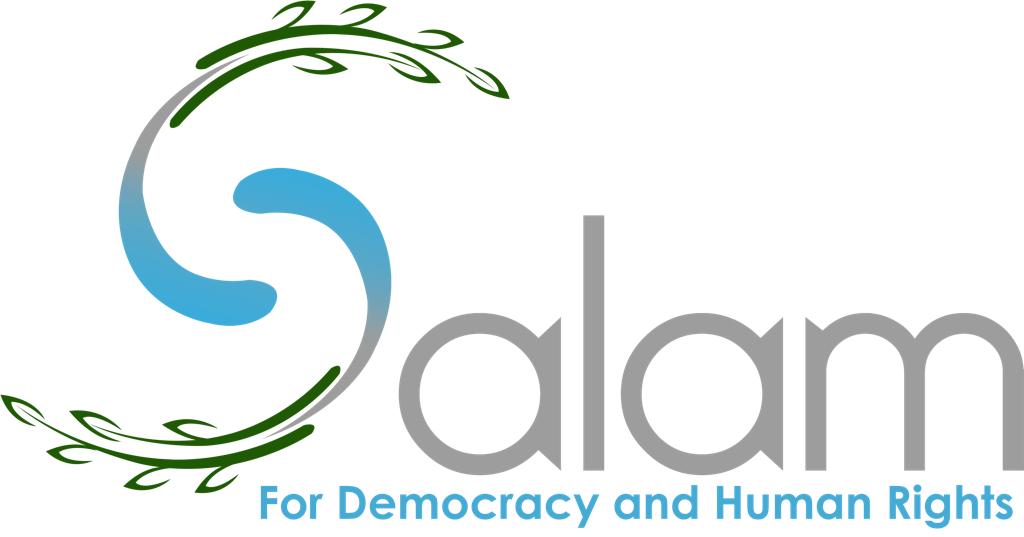
Member(s)
SALAM for Democracy and Human Rights (SALAM DHR)
on 30 April 2021
SALAM for Democracy and Human Rights (SALAM DHR) is an NGO that endeavors to preserve universal principles of dignity and respect by shielding democracy and human rights. SALAM DHR conducts monitoring and analysis, produces reports, develops recommendations on policy and legislation, organizes advocacy campaigns, conducts trainings, and builds effective coalitions. SALAM DHR is actively involved […]
2021
Bahrain
Document(s)
Italian : MANUALE DI FACILITAZIONE KIT DIDATTICO GUIDA ALL’USO DELLE METODOLOGIE PARTECIPATIVE PER L’EDUCAZIONE AI DIRITTI UMANI
By Amnesty International, on 8 September 2020
2020
NGO report
More details See the document
Questa guida rientra nel progetto Education for Human Dignity di Amnesty International e nasce per essere utilizzata con i moduli del progetto riguardanti povertà e diritti umani.Il manuale di facilitazione, è stato, però, realizzato con la flessibilità necessaria a renderlo fruibile anche singolarmente, come risorsa generale in diversi contesti.
- Document type NGO report
- Themes list Public opinion, Public debate,
Document(s)
Polish : Poradnik dla facylitatorów i facylitatorek Pakiet materiałów Projektu edukacja dla Godności Przewodnik Po strategiach aktywnego uczestnictwa w edukacji Praw człowieka
By Amnesty International, on 8 September 2020
NGO report
More details See the document
Publikacja jest częścią projektu Amnesty international – edukacja dla Godności i może być wykorzystywana w realizacji modułów projektowych na temat ubóstwa i praw człowieka, a także jako odrębna propozycja tematów zajęć szkoleniowych.
- Document type NGO report
- Themes list Public opinion, Public debate,
Document(s)
Slovene : PrIročnIk Izobraževalno gradIvo Izobraževanje za človekovo dostojanstvo Priročnik o uPorabi ParticiPatornih metod Pri učenju človekovih Pravic
By Amnesty International, on 8 September 2020
NGO report
More details See the document
Priročnik je del projekta Amnesty International Izobraževanje za človekovo dostojanstvo in je namenjen souporabi z vsebinskimi priročniki projekta o revščini in človekovih pravicah. Razvit pa je bil s fleksibilnostjo, ki omogoča, da se ga lahko uporabi tudi samostojno kot splošni pripomoček v raznolikih okoljih.
- Document type NGO report
- Themes list Public opinion, Public debate,
Document(s)
TRANSPARENCY AND THE IMPOSITION OF THE DEATH PENALTY, Report of the Special Rapporteur, Philip Alston
By United Nations / Philip Alston, on 1 January 2006
2006
International law - United Nations
arrufrzh-hantesMore details See the document
The present report of the Special Rapporteur on extrajudicial, summary or arbitrary executions analyses a critical area of non-compliance with legal safeguards designed to protect the right to life. It builds upon the proposition that “[c]ountries that have maintained the death penalty are not prohibited by international law from making that choice, but they have a clear obligation to disclose the details of their application of the penalty” (E/CN.4/2005/7, para. 59). The report analyses the legal basis of that transparency obligation and examines case studies that illustrate the major problems that exist in this area.
- Document type International law - United Nations
- Themes list Trend Towards Abolition,
- Available languages الإعدام عقوبة وفرض الش, ألستون∗ فيليب السيد الخاص، المقررТРАНСПАРЕНТНОСТЬ И ВЫНЕСЕНИЕ СМЕРТНОГО ПРИГОВОРА, Доклад Специального докладчика Филипа АлстонаTRANSPARENCE ET IMPOSITION DE LA PEINE DE MORT, Rapport du Rapporteur spécial, M. Philip Alston死刑的公开和执行问题, 特别报告员菲利普·奥尔斯顿的报告LA TRANSPARENCIA Y LA IMPOSICIÓN DE LA PENA DE MUERTE, Informe del Relator Especial, Philip Alston
Document(s)
Extrajudicial, summary or arbitrary executions: Report of the Special Rapporteur, Philip Alston
By United Nations / Philip Alston, on 1 January 2004
2004
International law - United Nations
arrufrzh-hantesMore details See the document
The analytical part of the report focuses in depth on a narrow range of issues, with an overall emphasis on accountability. The four principal topics addressed are: (i) genocide and crimes against humanity; (ii) violations of the right to life in armed conflict and internal strife; (iii) capital punishment; and (iv) violations of the right to life by non-State actors.
- Document type International law - United Nations
- Themes list Trend Towards Abolition,
- Available languages ح ا لا ت ا لإ ع د ا م خ ا ر ج ن ط ا ق ا ل ق ض ا ء أ و ب إ ج ر ا ء ا ت م و ج زة أ و ت عس ف ا ً تقرير المقرر الخاص فيليب ألستونВнесудебные казни, казни без надлежащего судебного разбирательства или произвольные казни: Доклад Специального докладчика Филипа АлстонаExécutions extrajudiciaires, sommaires ou arbitraires: Rapport du Rapporteur spécial, M. Philip Alston法外处决、即审即决或任意处决问题特别报告员; 菲利普·奥尔斯顿Las ejecuciones extrajudiciales, sumarias o arbitrarias: Informe del Relator Especial, Philip Alston

Member(s)
Association Marocaine des Droits Humains (AMDH)
on 30 April 2020
Association marocaine des droits humains (AMDH) works towards safeguarding human dignity and for the respect, defence and promotion of human rights. Convinced of the universal nature of these rights, the AMDH bases its action on the international agreements which defend them. It campaigns for them to be respected in the political, civil, economic, social and […]
2020
Morocco
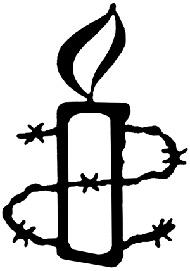
Member(s)
Amnesty International (AI)
on 30 April 2020
Amnesty International (AI) is a worldwide voluntary activist movement working for human rights. It is independent of any government, political ideology, or religious creed, economic interest or religion. It does not support or oppose any government or political system, nor does it support or oppose the views of the victims whose rights it seeks to […]
United Kingdom
Member(s)
Arab Coalition Against the Death Penalty
on 30 April 2020
Within the framework of its European Commission-sponsored programme against the death penalty, Penal Reform International (PRI), together with the Amman Centre for Human Rights Studies (ACHRS), organised a regional conference in Amman, Jordan, on July 2 and 3, 2007 to develop a regional strategy to advance the abolition of the death Penalty in the Arab […]
Jordan
Document(s)
Extrajudicial, summary or arbitrary executions: Report of the Special Rapporteur, Asma Jahangir
By United Nations / Asma Jahangir, on 1 January 2003
2003
International law - United Nations
frzh-hantesarruMore details See the document
The report also discusses the issue of capital punishment and makes reference to death penalty cases in which the Special Rapporteur has intervened in reaction to reports that the sentences concerned had been passed in violation of international restrictions and human rights standards.
- Document type International law - United Nations
- Themes list Trend Towards Abolition,
- Available languages Exécutions extrajudiciaires, sommaires ou arbitraires: Rapport de la Rapporteuse spéciale, Mme Asma Jahangir法外处决、即审即决或任意处决: 特别报告员阿斯玛·贾汉吉尔Las ejecuciones extrajudiciales, sumarias o arbitrarias: Informe de la Relatora Especial, Asma Jahangirحالات الإعدام خارج نطاق القضاء أو بإجراء اتموجة أو تعسفاً تقرير المقرر الخاص اسمة جهانقيرВнесудебные, суммарные и произвольные казни: Отчет специального докладчика Асмы Джахангир (Asma Jahangir)

Member(s)
Belarusian Helsinki Committee
on 30 April 2020
Founded in 1995, the National Human Rights Public Association “Belarusian Helsinki Committee” is one of the oldest human rights defenders organizations in Belarus. The list of its founders includes the nation’s most prominent leaders such as Vasil’ Bykau, Sviatlana Alexievich (Nobel prize in literature 2015). BHC sees as its main objective creating of civic context, […]
2020
Belarus
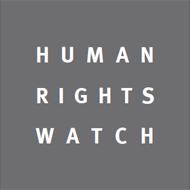
Member(s)
Human Rights Watch
on 30 April 2020
Human Rights Watch is a nonprofit, nongovernmental human rights organization made up of more than 275 staff members around the globe. Its staff consists of human rights professionals including country experts, lawyers, journalists, and academics of diverse backgrounds and nationalities. Human Rights Watch is known for its accurate fact-finding, impartial reporting, effective use of media, […]
France
Document(s)
Extrajudicial, summary or arbitrary executions: Report of the Special Rapporteur, Philip Alston
By United Nations / Philip Alston, on 1 January 2004
2004
International law - United Nations
arfrzh-hantesruMore details See the document
This report is submitted pursuant to Commission resolution 2005/34, and should be read in conjunction with its various addenda. They provide the following: a detailed analysis of communications sent to Governments which describe alleged cases of extrajudicial executions; reports on country missions to Nigeria and Sri Lanka during 2005; a report on the principle of transparency in relation to the death penalty; and several reports aimed at following up on earlier country missions to the Sudan, Brazil, Honduras and Jamaica.
- Document type International law - United Nations
- Themes list Trend Towards Abolition,
- Available languages تعسفاً أو موجزة بإجراءات أو القضاء نطاق خارج الإعدام حا ألستون* فيليب الخاص المقرر تExécutions extrajudiciaires, sommaires ou arbitraires: Rapport du Rapporteur spécial, Philip Alston法外处决、即审即决或任意处决问题特别报告员: 菲利普·奥尔斯顿的报告Las ejecuciones extrajudiciales, sumarias o arbitrarias: Informe del Relator Especial, Sr. Philip AlstonВнесудебные казни, казни без надлежащего судебного разбирательства или произвольные казни: Доклад Специального докладчика Филипа Алстона

Member(s)
HURILAWS
on 30 April 2020
HURILAWS began operations in 1997 as a specialist provider of human rights legal services and a purveyor of skills in the legal aspects of transition management. Today HURILAWS is also a public policy think tank working towards attainment of development, human rights and good governance. In particular, HURILAWS is the driver of the Multi-Sector Law […]
2020
Nigeria
Document(s)
Capital punishment and implementation of the safeguards guaranteeing protection of the rights of those facing the death penalty: Report of the Secretary-General
By United Nations, on 1 January 2005
2005
International law - United Nations
arruesesarruenfrfrzh-hantzh-hantMore details See the document
The present report, prepared pursuant to Economic and Social Council resolutions 1754 (LIV) of 16 May 1973 and 1995/57 of 28 July 1995, is the seventh quinquennial report of the Secretary-General on capital punishment.1 It covers the period 1999-2003 and reviews developments in the use of capital punishment worldwide, both in law and in practice. The report shows an encouraging trend towards abolition and restriction of the use of capital punishment in most countries. It also shows that much remains to be done in the implementation of the safeguards guaranteeing protection of the rights of persons facing the death penalty in those countries that retain it.
- Document type International law - United Nations
- Themes list Trend Towards Abolition,
- Available languages عقوبة الإعدام وتنفيذ الضمانات التي تكفل حماية حقوق الذين يواجهون عقوبة الإعدام : م ذكّرة من الأمين العامСмертная казнь и применение мер, гарантирующих защиту прав тех, кому грозит смертная казнь : Доклад Генерального секретаряLa pena capital y la aplicación de las salvaguardias para garantizar la protección de los derechos de los condenados a la pena de muerte : Informe del Secretario GeneralLa pena capital y la aplicación de las salvaguardias para garantizar la protección de los derechos de los condenados a la pena de muerte : Informe del Secretario Generalعقوبة الإعدام وتنفيذ الضمانات التي تكفل حقوق ال ذين يواجهون عقوبة الإعدام :تقرير الأمين العامСмертная казнь и осуществление мер, гарантирующих защиту прав тех, кто приговорен к смертной казни: Доклад Генерального секретаряCapital punishment and implementation of the safeguards guaranteeing protection of the rights of those facing the death penalty : report of the Secretary-GeneralPeine capitale et application des garanties pour la protection des droits des personnes passibles de la peine de mort: Rapport du Secrétaire généralPeine capitale et application des garanties pour la protection des droits des personnes passibles de la peine de mort: Rapport du Secrétaire général死刑和保护死刑犯权利的保障措施的执行情况: 秘书长的报告死刑和保护死刑犯权利的保障措施的执行情况: 秘书长的报告

Member(s)
Coalition of Somali Human Rights Defenders CSHRD
on 24 July 2024
The Coalition of Somali Human Rights Defenders (CSHRD) is an organization dedicated to promoting and protecting human rights in Somalia. CSHRD was established in 2014. CSHRD runs holistic and comprehensive torture victims rehabilitation centre in Somalia. CSHRD work is guided by the Universal Declaration of Human Rights UDHR and the SDGs of 1, 5, 10, […]
2024
Somalia
Document(s)
Report of the Special Rapporteur on extrajudicial, summary or arbitrary executions, Philip Alston
By United Nations / Philip Alston, on 1 January 2007
2007
International law - United Nations
arrufresMore details See the document
The present report details the activities of the Special Rapporteur in 2009 and the first four months of 2010. This is the final report to the Human Rights Council by Philip Alston in his capacity as Special Rapporteur. It analyses the activities and working methods of the mandate over the past six years, and identifies important issues for future research. Detailed addenda to this report address: (a) accountability for killings by police; (b) election-related killings; and (c) targeted killings.
- Document type International law - United Nations
- Themes list Trend Towards Abolition,
- Available languages تقرير المقرر الخاص المعني بحالات الإعدام خارج نطاق القضاءأو بإجراءات موجزة أو تعسفًا، السيد فيليب ألستونДоклад Специального докладчика по вопросу о внесудебных казнях, казнях без надлежащего судебного разбирательства или произвольных казнях, Филипа АлстонаRapport du Rapporteur spécial sur les exécutions extrajudiciaires, sommaires ou arbitraires, M. Philip AlstonInforme del Relator Especial, Philip Alston, sobre las ejecuciones extrajudiciales, sumarias o arbitrarias
Document(s)
Report of the Special Rapporteur on extrajudicial, summary or arbitrary executions, Philip Alston
By United Nations / Philip Alston, on 1 January 2007
International law - United Nations
arrufrzh-hantzh-hantesMore details See the document
In addition to reporting on the principal initiatives undertaken in 2006 to address the scourge of extrajudicial executions around the world, this report focuses on four issues of particular importance: (a) the mandate of the Special Rapporteur in armed conflicts; (b) “mercy killings” in armed conflict; (c) the “most serious crimes” for which the death penalty may be imposed; and (d) the international law status of the mandatory death penalty.
- Document type International law - United Nations
- Themes list Trend Towards Abolition,
- Available languages تقرير المقرر الخاص المعني بحالات الإعدام خارج نطاق القضاءДоклад Специального докладчика по вопросу о внесудебных казнях, казнях без надлежащего судебного разбирательства или произвольных казнях Филипа АлстонаRapport du Rapporteur spécial sur les exécutions extrajudiciaires, sommaires ou arbitraires, M. Philip Alston法外处决、即审即决或任意处决问题特别报告员菲利普·奥尔斯顿的报告法外处决、即审即决或任意处决问题特别报告员菲利普·奥尔斯顿的报告Informe del Relator Especial, Philip Alston, sobre las ejecuciones extrajudiciales, sumarias o arbitrarias
Document(s)
Issues Impacting LGBTQ+ Prisoners
By Death Penalty Information Center, on 3 September 2024
2024
NGO report
Cruel, Inhuman and Degrading Treatment and Punishment
Fair Trial
United States
More details See the document
LGBTQ+ people, especially people of color and low income, experience high levels of policing and criminalization, leading to an overrepresentation of these individuals in the incarcerated population. A 2017 study from researchers at the University of California, Los Angeles School of Law, suggests that LGBTQ+ people are three times as likely to be incarcerated than the general population. Once incarcerated, LGBTQ+ people are often subjected to violence from correctional staff and fellow prisoners, as well denied medical care and access to mental health services.
- Document type NGO report
- Countries list United States
- Themes list Cruel, Inhuman and Degrading Treatment and Punishment / Fair Trial

Member(s)
Lifespark
on 30 April 2020
lifespark is a Swiss organization and was founded in January 1993. lifespark is a non-profit organization, financed by membership dues and donations. All work for lifespark is done on a voluntary basis. lifespark has a central governing body; it has members from all linguistic regions of Switzerland. As of the end of 2012, the organization […]
2020
Switzerland

Member(s)
The Human Rights Centre “Viasna”
on 30 April 2020
The Human Rights Centre “Viasna” is a non-governmental human rights organization active since 1996. It is a nation-wide NGO with a central office in Minsk and a dozen local offices across the country. Viasna has about 200 members. In 2003, the Supreme Court groundlessly cancelled the registration of Viasna for its participation in the observation […]
Belarus
Document(s)
Extrajudicial, summary or arbitrary executions: Report of the Special Rapporteur, Ms. Asma Jahangir, submitted pursuant to Commission on Human Rights resolution 2001/45
By United Nations / Asma Jahangir, on 1 January 2002
2002
International law - United Nations
arrufrzh-hantesMore details See the document
The report also discusses the issue of capital punishment and makes reference to death penalty cases in which the Special Rapporteur has intervened in reaction to reports that the sentences concerned had been passed in violation of international restrictions and human rights standards.
- Document type International law - United Nations
- Themes list Trend Towards Abolition,
- Available languages حالات الإعدام خارج نطاق القضاء أو بإجراء اتموجة أو تعسفاً تقرير المقرر الخاص اسمة جهانقير, مقدم مطابقا لقرار لجنة الحقوق الانسان 2001/45Внесудебные казни, казни без надлежащего судебного разбирательства или произвольные казни: Доклад Специального докладчика г-жи Асмы Джахангир, представленный в соответствии с резолюцией 2001/45 Комиссии по правам человекаExécutions extrajudiciaires, sommaires ou arbitraires: Rapport de la Rapporteuse spéciale, Mme Asma Jahangir, présenté en application de la résolution 2001/45 de la Commission des droits de l'homme法外处决 即审即决或任意处决: 特别报告员阿斯玛 贾汉吉尔女士 根据人权委员会第 2001/45 号决议提交的报告Las ejecuciones extrajudiciales, sumarias o arbitrarias: Informe de la Relatora Especial, Sra. Asma Jahangir, presentado en cumplimiento de la resolución 2001/45 de la Comisión de Derechos Humanos
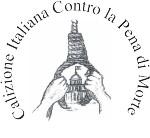
Member(s)
Coalizione italiana contro la pena di morte
on 30 April 2020
The Italian Coalition to Abolish the Death Penalty (ICADP) was established to form a network between both Italian and foreign groups, associations, movements, and individuals that oppose capital punishment, and to coordinate their work and efforts. The ICADP holds talks about the death penalty around the world, spreads information and promotes campaigns. It is especially […]
2020
Italy
Document(s)
Extrajudicial, summary or arbitrary executions: Report of the special rapporteur, Ms. Asma Jahangir, submitted pursuant to Commission on Human Rights resolution 1999/35
By United Nations / Asma Jahangir, on 1 January 2000
2000
International law - United Nations
arrufrzh-hantesMore details See the document
In its resolution 1999/35, the Commission on Human Rights requested the Special Rapporteur to continue monitoring the implementation of existing international standards on safeguards and restrictions relating to the imposition of capital punishment, bearing in mind the comments made by the Human Rights Committee in its interpretation of article 6 of the International Covenant on Civil and Political Rights, as well as the Second Optional Protocol thereto.
- Document type International law - United Nations
- Themes list Trend Towards Abolition,
- Available languages حالات الإعدام خارج نطاق القضاء أو بإجراء اتموجة أو تعسفاً تقرير المقرر الخاص اسمة جهانقير, مقدم مطابقا لقرار لجنة الحقوق الانسان 1999/35Внесудебные, суммарные и произвольные казни: Отчет специального докладчика Асмы Джахангир (Asma Jahangir) предоставленный в ответ на резолюцию 1999/35 Комиссии по правам человекаExécutions extrajudiciaires, sommaires ou arbitraires: Rapport de Mme Asma Jahangir, Rapporteuse spéciale, présenté conformément à la résolution 1999/35 de la Commission des droits de l'homme法外处决即审即决或任意处决: 特别报告员阿斯玛贾汉吉尔女士根据人权委员会第1999/35 号决议提交的报告Las ejecuciones extrajudiciales, sumarias o arbitrarias: Informe de la Relatora Especial, Sra. Asma Jahangir, presentado en cumplimiento de la resolución 1999/35 de la Comisión de Derechos Humanos
Document(s)
Extrajudicial, summary or arbitrary executions: Report of the Special Rapporteur, Ms. Asma Jahangir
By United Nations / Asma Jahangir, on 1 January 1999
1999
International law - United Nations
arrufrzh-hantesMore details See the document
This report is submitted pursuant to Commission on Human Rightsresolution 1998/68 of 21 April 1998 entitled “Extrajudicial, summary orarbitrary executions”. It is the first report submitted to the Commission byMs. Asma Jahangir and the sixteenth submitted to the Commission since themandate on “summary and arbitrary executions” was established by Economic andSocial Council resolution 1982/35 of 7 May 1982.
- Document type International law - United Nations
- Themes list Trend Towards Abolition,
- Available languages حالات الإعدام خارج نطاق القضاء أو بإجراء اتموجة أو تعسفاً تقرير المقرر الخاص اسمة جهانقيرВнесудебные, суммарные и произвольные казни: Отчет специального докладчика Асмы Джахангир (Asma Jahangir)Exécutions extrajudiciaires, sommaires ou arbitraires: Rapport de Mme Asma Jahangir, Rapporteuse spéciale法外处决即审即决或任意处决: 特别报告员阿斯玛贾汉吉尔女士Las ejecuciones extrajudiciales, sumarias o arbitrarias: Informe de la Relatora Especial, Sra. Asma Jahangir
Document(s)
Extrajudicial, summary or arbitrary executions: Report of the Special Rapporteur, Bacre Waly Ndiaye
By United Nations / Bacre Waly Ndiaye, on 1 January 1997
1997
International law - United Nations
arrufrzh-hantesMore details See the document
This report is submitted pursuant to Commission on Human Rightsresolution 1997/61 of 16 April 1997 entitled “Extrajudicial, summary orarbitrary executions”. It is the sixth report submitted to the Commissionon Human Rights by Bacre Waly Ndiaye and the fifteenth submitted to theCommission since the mandate on “Summary and arbitrary executions” wasestablished by Economic and Social Council resolution 1982/35 of 7 May 1982.
- Document type International law - United Nations
- Themes list Trend Towards Abolition,
- Available languages حالات الإعدام خارج نطاق القضاء أو بإجراء اتموجة أو تعسفاً تقرير المقرر الخاص باكرة والي ندايةВнесудебные, суммарные и произвольные казни: Отчет специального докладчика Бакре Вали Ндиай (Bacre Waly Ndiaye)Exécutions extrajudiciaires, sommaires ou arbitraires: Rapport du Rapporteur spécial, Bacre Waly Ndiaye法外处决 即审即决或任意处决: 特别报告员巴克雷瓦利恩迪亚耶先生Las ejecuciones extrajudiciales, sumarias o arbitrarias: Informe del Relator Especial, Bacre Waly Ndiaye

Member(s)
Journey of Hope… From Violence to Healing
on 30 April 2020
“Journey of Hope…from Violence to Healing is an organisation led by murder victim family members joined by death row family members, family members of the executed, the exonerated, and others with stories to tell, that conducts public education speaking tours and addresses alternatives to the death penalty. Every year, the organisation arranges a Journey of […]
2020
United States

Member(s)
Ligue des droits de l’Homme
on 30 April 2020
Founded in 1898 during the Dreyfus affair, the League for Human Right (LDH) has a rich history thanks to a century of activism and attentive monitoring of all major contemporary issues. Originally, its mandate was to defend an innocent man, victim of anti-Semitism and reason of state, but the LDH expanded its actions to include […]
France

Member(s)
Death Penalty Focus
on 30 April 2020
Death Penalty Focus (DPF) is a non-profit advocacy organization dedicated to the abolition of capital punishment in the United States through public education; grassroots organizing and political advocacy; media outreach; and domestic and international coalition building. With 150,000 members and supporters nationwide, DPF is governed by a volunteer Board of Directors comprised of renowned political, […]
United States
Document(s)
Report of the Special Rapporteur on torture and other cruel, inhuman or degrading treatment or punishment, Manfred Nowak
By United Nations / Manfred Nowak, on 1 January 2009
2009
International law - United Nations
arfrzh-hantesruMore details See the document
In chapter III, the Special Rapporteur focuses on the compatibility of the death penalty with the prohibition of cruel, inhuman and degrading punishment. He concludes that the historic interpretation of the right to personal integrity and human dignity in relation to the death penalty is increasingly challenged by the dynamic interpretation of this right in relation to corporal punishment and the inconsistencies deriving from the distinction between corporal and capital punishment, as well as by the universal trend towards the abolition of capital punishment.
- Document type International law - United Nations
- Themes list Trend Towards Abolition,
- Available languages تقرير المقرر الخاص المعني بمسألة التعذيب وغيره من ضروب المعاملةأو العقوبة القاسية أو اللاإنسانية أو المهينة، مانفرِد نوواكRapport du Rapporteur spécial sur la torture et autres peines ou traitements cruels, inhumains ou dégradants, Manfred Nowak酷刑和其他残忍、不人道或有辱人格的待遇或处罚问题特别报告员曼弗雷德·诺瓦克的报告Informe del Relator Especial sobre la tortura y otros tratos o penas crueles, inhumanos o degradantes, Manfred NowakДоклад Специального докладчика по вопросу о пытках и других жестоких, бесчеловечных или унижающих достоинство видах обращения и наказания Манфреда Новака
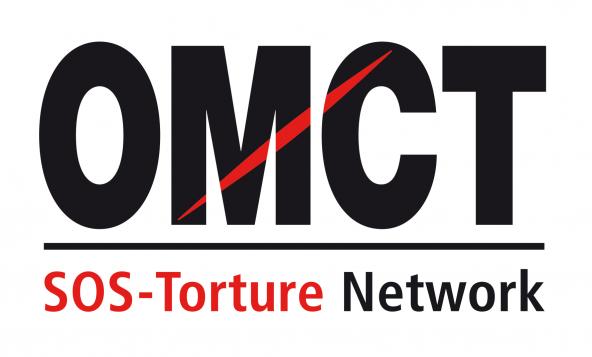
Member(s)
Organisation Mondiale Contre la Torture (OMCT)
on 30 April 2020
The OMCT is an independent, non-partisan, non-sectarian, Swiss international non-governmental organisation, founded in Geneva in 1985. It is today the leading global civil society network against torture including more than 200 local member organisations operating in over 90 countries around the world. Driven by the needs of its SOS-Torture Network members, the OMCT engages in […]
2020
Switzerland

Member(s)
Palestinian Center for Human Rights
on 30 April 2020
The Palestinian Centre for Human Rights (PCHR) is an independent Palestinian human rights organisation based in Gaza City. It enjoys Consultative Status with the ECOSOC of the United Nations and is an affiliate of the International Commission of Jurists (Geneva), the International Federation for Human Rights (Paris), the Euro-Mediterranean Human Rights Network (Copenhagen) and the […]
State of Palestine

Member(s)
People of Faith Against the Death Penalty
on 30 April 2020
People of Faith Against the Death Penalty (PFADP) is a nongovernmental organisation whose mission is to educate and mobilise faith communities to act to abolish the death penalty in the United States. Founded in 1994 in North Carolina, PFADP focuses its programs on organising among faith communities in the Southern United States, where most executions […]
United States
Document(s)
Report by the Special Rapporteur on torture and other cruel, inhuman or degrading treatment or punishment, Manfred Nowak – MISSION TO MONGOLIA
By United Nations / Manfred Nowak, on 8 September 2020
2020
NGO report
Mongolia
rufrzh-hantesarMore details See the document
The Special Rapporteur is also deeply concerned about all the circumstances surrounding the death penalty in Mongolia, especially the total secrecy. Despite repeated requests to the highest authorities of the Government, as well as prosecutors and the judiciary, the Special Rapporteur was not provided with any official information. Concern was expressed that not even the families of the condemned persons are notified of the exact date or place of execution and do not receive their mortal remains for burial, which amounts to inhuman treatment of the family, contrary to article 7 of the Covenant. Moreover, prisoners on death row at the Gants Hudag and Zuunmod detention centres are held in complete isolation, handcuffed and shackled, and denied adequate food. These conditions constitute additional punishments which can only be qualified as torture as defined in article 1 of the Convention.
- Document type NGO report
- Countries list Mongolia
- Available languages Доклад Cпециального докладчика по вопросу о пытках и других жестоких, бесчеловечных или унижающих достоинство видах обращения и наказания Манфреда Новака - МИССИЯ В МОНГОЛИЮRapport du Rapporteur spécial sur la torture et autres peines ou traitements cruels, inhumains ou dégradants, M. Manfred Nowak - MISSION EN MONGOLIE酷刑和其他残忍、不人道或有辱人格的待遇或处罚问题 特别报告员曼弗雷德·诺瓦克的报告 - 对蒙古的访问Informe del Relator Especial sobre la tortura y otros tratos o penas crueles, inhumanos o degradantes, Manfred Nowak - MISIÓN A MONGOLIAمن وغيره التعذيب بمسألة المعني الخاص المقرر نواك، منفرد السيد تقرير المهينة أو اللاإنسانية أو القاسية العقوبة أو المعاملة ضروب - منغوليا إلى البعثة

Member(s)
National Lawyers Guild (NLG)
on 30 April 2020
The National Lawyers Guild (NLG) is an association dedicated to the need for basic and progressive change in the structure of the US political and economic system. It seeks to unite the lawyers, law students, legal workers and jailhouse lawyers of America in an organization that shall function as an effective political and social force […]
2020
United States
Document(s)
The Death Penalty in the OSCE Area – Background Paper 2010
By Organization for Security and Co-operation in Europe (OSCE), on 8 September 2020
2020
NGO report
Albania
ruMore details See the document
This paper updates The Death Penalty in the OSCE Area: Background Paper 2009.It is intended to provide a concise update to highlight changes in the status of thedeath penalty in OSCE participating States since the previous publication and topromote constructive discussion of this issue. It covers the period from 1 July 2009to 30 June 2010. —– To find past OSCE papers please visit: http://www.osce.org/documents?keys=The+Death+Penalty+in+the+OSCE+Area+-+Background+Paper+
- Document type NGO report
- Countries list Albania
- Themes list Trend Towards Abolition,
- Available languages Смертная казнь в регионе ОБСЕ. Справочный документ за 2010 г.
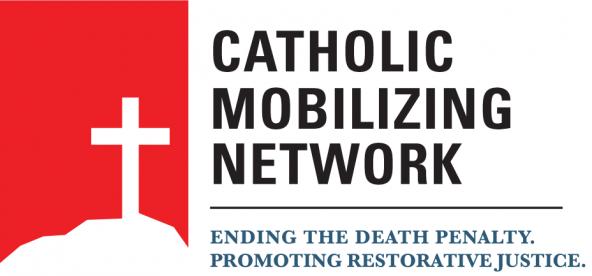
Member(s)
Catholic Mobilizing Network
on 30 April 2020
Catholic Mobilizing Network is a national organization working in close collaboration with the United States Conference of Catholic Bishops (USCCB) and living the mission of the Congregation of St. Joseph. Catholic Mobilizing Network (CMN) proclaims the Church’s pro-life teaching and prepares Catholics for informed involvement in the public debate to end the death penalty and promote […]
2020
United States
Document(s)
Extrajudicial, summary or arbitrary executions: Report of the Special Rapporteur, Asma Jahangir, submitted pursuant to Commission on Human Rights resolution 2002/36
By United Nations / Asma Jahangir, on 1 January 2003
2003
International law - United Nations
arrufrzh-hantesMore details See the document
The report also discusses the issue of capital punishment and makes reference to death penalty cases in which the Special Rapporteur has intervened in reaction to reports that the sentences concerned had been passed in violation of international restrictions and human rights standards.
- Document type International law - United Nations
- Themes list Trend Towards Abolition,
- Available languages حالات الإعدام خارج نطاق القضاء أو بإجراء اتموجة أو تعسفاً تقرير المقرر الخاص اسمة جهانقير, مقدم مطابقا لقرار لجنة الحقوق الانسان 2002/36Внесудебные казни, казни без надлежащего судебного разбирательства или произвольные казни: Доклад Специального докладчика Асмы Джахангир, представленный в соответствии с резолюцией 2002/36 Комиссии по правам человекаExécutions extrajudiciaires, sommaires ou arbitraires: Rapport de la Rapporteuse spéciale, Mme Asma Jahangir, soumis en application de la résolution 2002/36 de la Commission des droits de l’homme法外处决、即审即决或任意处决: 特别报告员阿斯玛·贾汉吉尔根据人权委员会第 2002/36 号决议提交的报告Las ejecuciones extrajudiciales, sumarias o arbitrarias: Informe de la Relatora Especial, Asma Jahangir, presentado en cumplimiento de la resolución 2002/36 de la Comisión de Derechos Humanos

Member(s)
Taiwan Alliance to End the Death Penalty (TAEDP)
on 30 April 2020
The Taiwan Alliance to End the Death Penalty (TAEDP) is a coalition of local abolitionist NGOs and research institutes, which promotes the reform of Taiwan’s penal system in addition to advocating the abolition of the death penalty. It was launched in September 2003, by the Taiwan Association for Human Rights (TAHR), the Judicial Reform Foundation […]
2020
Taiwan

Member(s)
Women’s Information Consultative Center
on 30 April 2020
The main goal of the Women’s Information Consultative Center is to gather, generalise and disseminate information about women’s human rights and initiatives among women inside and outside Ukraine. Another goal of the Center is to create a discussion about gender issues in the political and social life of Ukraine to achieve real equality in society. […]
Ukraine
Document(s)
Poster World Day 2003
By World coalition against the death penalty , on 10 October 2003
2003
Campaigning
Trend Towards Abolition
frMore details See the document
Poster World Day 2003
- Document type Campaigning
- Themes list Trend Towards Abolition
- Available languages Affiche journée mondiale 2003
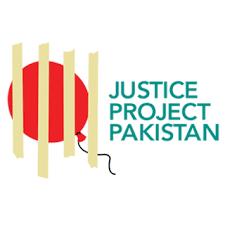
Member(s)
Justice Project Pakistan (JPP)
on 30 April 2020
Justice Project Society, commonly referred to as Justice Project Pakistan (JPP), represents the most vulnerable Pakistani prisoners facing the harshest punishments at home and abroad, including those facing the death penalty, mentally ill prisoners, juvenile prisonners, women, victims of police torture, and overseas Pakistani prisoners. JPP was the winner of the 2016 Franco-German Human Rights […]
2020
Pakistan

Member(s)
Réseau d’alerte et d’intervention pour les droits de l’Homme (RAIDH)
on 30 April 2020
The Alert and Intervention Network for Human Rights (Réseau d’alerte et d’intervention pour les droits de l’Homme (RAIDH) aims to organise, finance and support any work, initiatives, measures, ideas or discussions which aim to defend and promote human rights (particularly civil and political rights, economic, social and cultural rights, international humanitarian rights, rights for refugees, […]
France
Document(s)
Poster World Day 2003
By World Coalition against the death penalty , on 10 October 2003
2003
Campaigning
Trend Towards Abolition
More details See the document
Poster for the world day against the death penalty 2003
- Document type Campaigning
- Themes list Trend Towards Abolition
Document(s)
Poster World Day 2004
By World Coalition against the death penalty , on 10 October 2004
2004
Campaigning
Trend Towards Abolition
esfrMore details Download [ pdf - 17 Ko ]
Poster world day against the death penalty 2004
- Document type Campaigning
- Themes list Trend Towards Abolition
- Available languages Poster Spanish 2004Affiche journée mondiale 2004
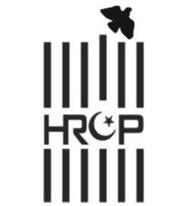
Member(s)
Human Rights Commission of Pakistan
on 30 April 2020
Founded in 1986 and registered in 1987, the Human Rights Commission of Pakistan (HRCP) is an independent, democratic, nonpartisan organization committed to supporting human rights in the country. Over the last three decades, HRCP has worked for women’s empowerment and gender equality, the rights of religious minorities, rule of law and access to justice, democratic […]
2020
Pakistan
Document(s)
Poster World Day 2006
on 10 October 2006
2006
Campaigning
Trend Towards Abolition
frMore details Download [ pdf - 191 Ko ]
Discrimination, unfair trials, judicial error, the execution of child
offenders and those suffering from mental disabilities all
amount to a failure of justice and provide more compelling rea-
sons to abolish the death penalty. 10 October 2006 is the fourth
World Day Against the Death Penalty. Join the World Coalition
Against the Death Penalty in working for an end to the use of
capital punishment and a globe free of judicial killing.
- Document type Campaigning
- Themes list Trend Towards Abolition
- Available languages Affiche journée mondiale 2006

Member(s)
KontraS (Commission for the Disapeared and Victims of Violence)
on 30 April 2020
KontraS (Commission for the Disappeared and Victims of Violence) in Indonesia is a human rights NGO that deals with human rights issues in Indonesia, particularly civil and political rights. Abolition of the death penalty is one of its advocacy objectives. KontraS is a member of regional and national networks: Anti Death Penalty Asian Network (ADPAN) […]
2020
Indonesia
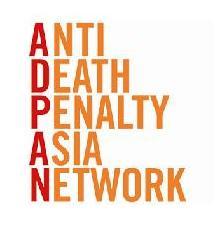
Member(s)
Anti-Death Penalty Asia Network (ADPAN)
on 30 April 2020
The Anti-Death Penalty Asia Network (ADPAN) was founded in Hong Kong on the World Day against the Death Penalty in 2006. In 2014, at its first General Meeting in Taipei, Taiwan, Anti-Death Penalty Asia Network (ADPAN) members approved ADPAN’s Constitution, and ADPAN’s first Executive Committee was elected. ADPAN, an independent Asia-Pacific network committed to working […]
Malaysia

Member(s)
California People of Faith
on 30 April 2020
The California People of Faith (CPF) is a nonprofit organization 501, based in Los Angeles in the United States. CPF is an interfaith organization which advocates for alternatives to the death penalty in California and throughout the United States. CPF coordinates grassroots affords via chapters located throughout California, organizing Faith-based communities to resist corrosive temptation […]
United States

Member(s)
Barreau de Paris
on 30 April 2020
The Paris Bar was founded under the reign of Louis XIV. Nowadays, it represents around 20 000 lawyers, i.e. nearly half of those practicing in France. Its prime objectives are to organise and structure the legal profession, to strengthen training and adapt it to the deep changes occurring in society and to expand the role […]
France

Member(s)
Themis Fund / The 8th Amendment Project
on 30 April 2020
Mandate and goals : Abolition of the death penalty in the United States. Kind of actions : Strategic coordination of advocates, litigators, funders and activists throughout the U.S. We work in partnership with all the major funders of the abolition movement in the U.S., and with almost all of the activists, lawyers, and political advocates […]
United States

